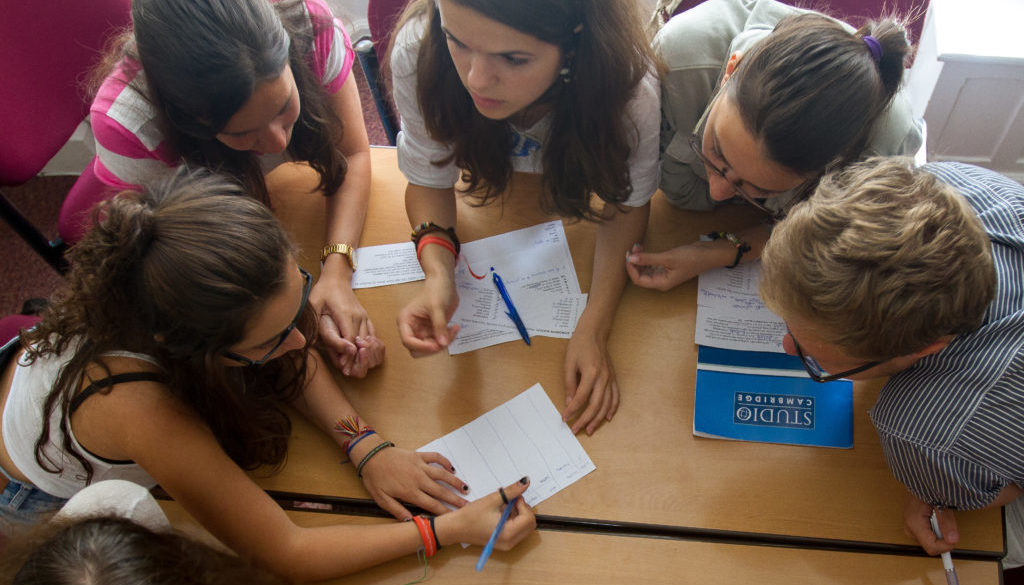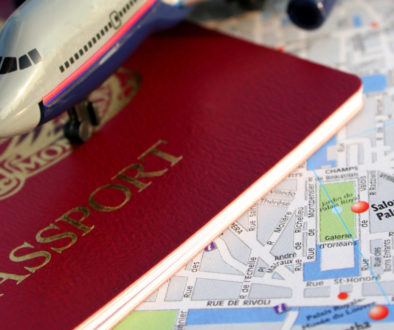Junior Programs Explained to Parents
MARSHALL LANGUAGE SERVICES’ JUNIOR AND TEENAGE PROGRAMS—ESSENTIAL INFORMATION FOR PARENTS
Marshall Language Services has been organizing language programs abroad for junior students, defined as those typically younger than 18, for more than ten years. We have worked with some of the best quality programs on the market, and have been rewarded for it by many clients returning to us year after year and recommending their friends to us for programs for their children.
We recognize that even more so than with adult programs, choosing a junior program for a child can be a daunting experience for parents. There are hundreds, if not thousands of these programs on the market, all promising to offer the best in terms of quality, safety, and interesting activities for their students. It is sometimes even difficult for a language study agent to know where to start in choosing one. So if that’s the case, how can a parent decide which one to select?
WHAT EXACTLY IS A “JUNIOR PROGRAM”? HOW IS IT DIFFERENT FROM AN ADULT PROGRAM?
We will begin by explaining the difference between a real junior program and an adult program that accepts teenagers, because many of the latter ones do. A junior program usually consists of a package containing a language course, which can be semi-intensive (usually a half day in the morning or afternoon) or intensive, usually consisting of a morning of lessons and more lessons on some or all of the afternoons, five days a week, and an assortment of activities in the afternoons and evenings and on the weekends. Most good programs will include at least one half day excursion to the surrounding area and one whole day excursion each week, usually to a city or to larger destination that might be further away. A junior program package will include all of the costs of transport and entrance fees to the places visited. The package will also include accommodation, which can be with a host family, usually with all meals included (either the host family will pack a lunch for the child during the week and offer hot meals on weekends, or lunch will be taken at the school.) If it’s not with a host family, accommodation is typically in a student dormitory, either at a boarding school or university campus. For some programs, the accommodation might be in hotels, even ones that are more luxurious than student residences. The rooms in all types of accommodation are usually shared between two or more students, but some programs offer single rooms, either automatically or upon payment of a supplement. Junior program packages always include the cost of learning materials, all the costs of participating in activities outside the language lessons (except for special, more intensive activities like professional training in a particular sport) and they often include insurance for the duration of the program and airport transfers on given dates between given airports and times.
In the past few years, there has been an increasing trend of “Language Plus” courses in junior programs, in which students do typically half a day of the language they are studying, and then choose another study option or one particular sport to do for more hours in the week than by participating in the assortment of general activities and sports. For example, they might study entrepreneurship or tennis for 6 hours a week in addition to the general language class. We believe that this is an excellent way for students to become more involved and enthusiastic about their language study programs abroad—they will be able to put the language to use, and to learn the language through activities that interest them anyway. Many of them have become bored with years of grammar in their Italian schools, and are looking for a way to actually put everything that they learned to use.
Junior packages also include a high degree of supervision of the children. They will be assigned to a group with its own leader, and the students will always have to be accountable to this leader. They will usually be required to participate in excursions and in the activities outside of the lesson. The ratio of students to a leader varies with each program but in good programs, it should be no larger than 1:10, but the smaller the ratio, the better.
When parents book a proper junior program for their children, the typically pay for a complete package. The only additional money that they will spend is on pocket money for their children, to purchase souvenirs or snacks on their study trips.
Instead, when a parent books an adult course in a school that accepts teenagers on their programs, they book all of the separate elements a la carte. This means that they choose the intensity of the course, and also the type of course (for example, they may prefer an exam course instead of a general language course if the child has attained the appropriate level for that course). They will also book an accommodation, if necessary. For students under 18, this usually means that they will have to stay with host families, although over the years we have identified some residential facilities in a few cities that will accept students who are 16 or 17. In these cases, there is usually a school staff member who stays with the students in that facility, or the parents will have to sign a waiver of responsibility.
On an adult program, all of the schools we use offer a rich calendar of activities in which their students can participate, but they are all optional and some may incur an additional cost, for entrance fees or for transport. Also in an adult school, the students have access to the staff of a student welfare office, who will be able to help students in general with questions and any problems that they might run into, but they do not offer supervision of the student. A student is not required to be accountable to this staff, and the staff will not be responsible for knowing where that student is at all times.
A parent booking a child on an adult program should keep in mind that even though our schools are always concerned about the well-being of their students, children on these programs will be “free” to do as they like. They will not be required to participate in any of the social activities or check-in with a group leader. At the most, unlike the persons aged 18 and over on the program, they may have a curfew in their host families or accommodation. Also, for getting to and from the school at the beginning and end of a stay, airport transfers are not typically included in adult course or accommodation prices. The school can always offer private transfers at an extra cost, or the student may be allowed to arrive at the school on his or her own if the route from the airport is not complicated. Parents will also need to purchase a separate insurance policy for the student, for medical, travel, personal liability and for program cancellation, if desired. Parents should also keep in mind that amongst the adult students in the school, their child will be among the youngest. We only recommend these types of programs for teenagers who demonstrate exceptional maturity for their age and don’t mind participating in classes and activities with older adults. If possible, we recommend booking a school in a smaller city or town, or at least in a residential neighborhood of a larger city, where the student can walk to and from the school and to other places of interest. We also recommend booking schools that offer both adult and junior programs, so that if the student, school or parent determines that a junior program would really be a better option for that student, they can easily make the switch.
WHAT MARSHALL LANGUAGE SERVICES RECOMMENDS TO PARENTS IN BOOKING A JUNIOR PROGRAM
Send your child on an individual basis. First and foremost, we absolutely recommend that parents book their children on program on an individual basis, and not send them with a school group. For as long as we’ve been working in the junior market, we have heard complaints from parents about the money that they wasted sending their children on these programs prior to coming to us. Sending students on language study trips with their schoolmates or in other groups has long been a tradition in Italy, and unfortunately, many parents think that it’s the only way to send children abroad to learn languages. It is not necessary to point out that on these trips, students participate in group language courses (often only with the participants of their own group), stay in the same accommodation as the group, and do everything else as a group, and therefore speak only their own language amongst themselves. One Italian mother once told Rachel, “I sent my daughter to England with a group last year, and not only did she not learn English, but she came back speaking Italian worse than before!” Many parents already know of the disadvantages of group language courses, but aren’t aware of the fact that there are much more effective ways for their children to learn English abroad, or they are afraid for the safety of their children if they don’t send them with a group leader from home. This latter fear is completely unfounded. Our agency and the schools we work with pay the utmost attention to safety and supervision from the moment their plane lands in the country of destination to the moment (and afterwards) that it leaves again for home. Teenagers can travel on some airlines as unaccompanied minors, in which the parent leaves their child with the staff of the airline, who will supervise the child on the flight and when the child arrives in the destination airport, until he or she is handed over to the staff of the program. Airlines are very strict about knowing exactly who will be picking up the child and the specific information about this person must be communicated ahead of the trip—they will ask you for it as a condition of booking the ticket. Some older students may travel by themselves to their destination, and in these cases, the parents will communicate their flight information to the school. Schools will always verify that the flight information is correct before the day of travel, and will be ready to meet them in the airport. The schools and Marshall Language Services will provide very specific information in Italian to the parents and to the students about how to find the person picking them up at the airport. The child will then be taken to their accommodation and never left alone. Once they arrive at the school, on the same day or on the day that classes start, they will be assigned to a small group of international students with its own leader. If the student has problems, many schools and programs have Italian speaking staff members, or Marshall Language Services staff will always be available to help communicate with the parents. All throughout the program, the students will be supervised, and at the end of the program, the same care and attention will be given to the return transfer as to the arrival. Given the high quality of the programs that Marshall Language Students has always used for its junior students, we are happy to say that in many years, we have never had a problem with the arrival or return airport transfers, and the safety and supervision of any of our clients on these programs. We have been rewarded for our efforts in hearing that the students who went on these programs either by themselves or with one or two friends at the most, always made great progress in their language learning, much more than did their friends or schoolmates who went with the typical school group.
Parents should also consider that when they send their children with a group, they pay a significant sum in expenses that are not directly associated with the program. For example, if a program costs 2000 Euros per person traveling with a group, some of that cost is going to subsidize the cost of one or more leaders accompanying the group (even 500 Euros, or 25% of that figure), the leader’s flights and other expenses. When a parent pays 2000 Euros to send their child on an individual basis, much more of that cost goes toward the actual course, activities and accommodation, allowing the child to participate in a higher quality program for the same amount of money. As we mentioned above, the child does not need a leader traveling with a group, as he or she will become part of an international group with a dedicated leader in the program.
Lastly, we are aware that there is a section of this website aimed at teachers who want to take a school group for language study abroad, which might seem like a contradiction of everything we have just said. The reason for that section is that even though we don’t at all favor sending teenagers abroad for language study in groups when parents have a choice and pay for the program out of pocket, there are specific state programs that fund foreign language learning for schoolchildren, and it is only valid for travel in a group. In those cases, we look for schools and programs who can integrate the children into mixed nationality classes and possibly also the activities, and who can offer accommodation with a host family. In that way, the children will have at least some opportunity to speak the language they are learning with students from other countries, and to benefit from a multinational, multicultural study experience in the school. In the homestays, they will be obligated to practice the language at least during meals with the host families. There are also programs that offer school children the possibility of spending a week or more in foreign schools with children from that country (“mini-stay programs”).
Book host family accommodation for your children. With the schools and programs that Marshall Language Services offers for juniors, there is no need to fear that when your children go abroad, that they will be neglected, eat badly, live in a dirty or crowded house, or be far from the school. The stories that abound about these experiences on language courses overseas invariably stem from the use of cheap, low quality programs that we don’t consider for our clients. To begin with, we only recommend junior programs with host family accommodation in places in which the school is walking distance or a very short bus or ride from the family, but preferably within walking distance. The schools we use take extra care in selecting host families for their junior students (these families also have to satisfy police checks and more stringent requirements than do families who only host adults) and very often, the families that they use host only teenage children. Most of these families, if not all of them, have or have had children of their own and are well familiar with the needs of a child, especially one who is far from home. Sometimes those children are still in the home and become friends with the hosted student. In many years of booking junior programs for our clients, complaints about host families have been rare, and they usually stem from a linguistic misunderstanding or the child’s “culture shock” on the day of arrival. If a child should ever continue to be unhappy in a host family, a good school will immediately move him or her to another one, or to a student residence if available. However, the vast majority of our clients have been extremely satisfied with their host family placements and the children have remained in touch with the families for years after the trip. Once they had a positive experience in a host family, they almost never chose another form of accommodation for a successive trip. It is a given that children will learn the language better in a family than in a student residence, where at best, they will not be speaking with mother tongue persons of the language that they are learning, and at worst, congregating exclusively with their compatriots. At one time, staying with a host family was the only way that students went to really learn a language abroad, not only the language but also the culture of the place. It may also help to know that programs that offer host family accommodation are usually less expensive than those in which the students will be staying in a residence or hotel.
WHAT MARSHALL LANGUAGE SERVICES LOOKS FOR IN A JUNIOR PROGRAM
The single most important factor, other than the general quality of the program, that our agency looks for in recommending a junior program to parents is the nationality mix of the participants. We cannot emphasize enough how important this is to the success of the child’s language study program. We realize that many teenagers in Italy are somewhat limited in the time that they can go on these programs, i.e., between the time that school lets out and the date that their families leave for their own vacations, and that there may be other factors like other shorter trips or sports competitions for the child that come into play when scheduling a language study trip. For most students in Italy, this means that they will be going in the month of July, when there are literally millions of other Italian teenagers on language programs in the “classic” study destinations. For this reason, we do our best to recommend for the student a language program that will not have more than a certain percentage of a particular native speaking language group in the specific weeks that they want to be there. The better quality junior programs will automatically not accept more than a particular percentage of these groups when they enroll students, which is usually a maximum of 25%, but it’s better if that number is lower. It is also not enough for there not to be a high percentage of Italians on a program, but it’s not desirable to have a high number of, for example, only Spanish or Russian speakers on a program, as they will tend to band together and leave out the speakers of other languages. For this reason, Marshall Language Services only works with schools that make a concerted effort to provide a good mix of nationalities on their junior programs. For parents, this can mean spending a bit more on a program, as the school has to sustain the costs of marketing to agents in many different countries, but in the end the result in their child’s language improvement will have been well worth that difference in cost.
Besides a good nationality mix, there are a number of other factors that we consider when a recommending a junior program to parents:
- What are the accreditations of the school or company offering the program? The requirements of the accreditations themselves offer at least a minimum guarantee of quality in language teaching, accommodation and other factors for that program. Many accreditations are specific for junior programs, like English UK Young Learners.
- How long has the school or company been in business, and how long have they offered that particular program? The more years the program has been in business, the more time they have had to iron out any organizational difficulty encountered over the years. Many years in operation also signals that the program attracts repeat or word of mouth clientele.
- Is the school or program well-known and recommended by the personnel of other major schools in the industry? We very often ask this of the directors of other programs that don’t compete with that one.
- What is the quality of the school’s facilities in general? Prestigious boarding schools usually have a very high quality and ample assortment of sports and recreational facilities for their students.
- If the program provides residential accommodation, how many students share a room and how many share a bathroom? However, we advise parents to be careful with this consideration—we have been told by more than one school that it is only Italians who request their single rooms with private bathrooms, and usually large groups of them at that.
- If the program provides host family accommodation, are the families in walking distance of the program? Is the weekday lunch packed by the family, or is a hot lunch provided at the school?
- What is the assortment and quality of the activities outside of the classroom? For example, is there something to do for children who don’t like sports? Are there sufficient indoor activities planned for days that it may rain?
- What is the student to group leader ratio? In the best programs, it is 1:6 or lower.
- Is the program available in June and in August? For students who are able to go outside of the month of July, there will be far fewer Italians on the program in these two months, and in June airfares cost less. Some programs also offer discounts to students who book them in these months.
- On what days of the week does the program begin and end? For example, some programs run from Saturday to Saturday or Sunday to Sunday, meaning that there will be one more full day excursion on a weekend for a student than in a program that runs from Sunday to Saturday.
- Does the program begin on a weekend or during the week? There are some programs that run from Wednesday to Wednesday, for example. This allows parents to book cheaper flights in the high season than those on Saturdays or Sundays. It also means that the airports will be less crowded on those days and allow for a smoother pickup and drop-off of the children by the airport staff. For their programs themselves, the “school week” will be from Thursday to Monday, for example, and the “weekend” with the full day excursion will on a Tuesday or a Wednesday. In this way, the tourist attractions that the students visit on those days will be less crowded than on “real” weekend days.
- Is the program fairly flexible in the transfer times for transfers that it includes in the program price–for example, will it allow arrivals late in the evening, or departures early or late on the return day, or will a parent have to pay extra for a transfer out of hours?
- How close is the school or campus to a town and how often will students be able to go to the town? Will older teenagers, if their parents desire it for them, ever be able to go around the town on their own (in small groups)?
- If students at the upper age limit of a junior program become bored or feel that they are too old for it, does the school have an adult program that they can easily switch to?
- What exactly is included in the cost of the program and is it near an airport that is easily reachable from the student’s home country? Transfers that are not included in the program cost can add hundreds of euros to it, particularly if the student travels alone or has to travel to and from an out-of-the way airport from that program. Also, does the program have a rich enough assortment of activities without the need for adding on others that have an additional cost?



